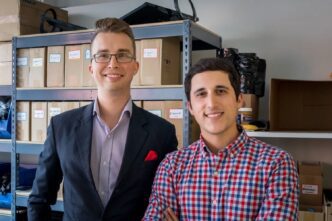Cambridge deep tech ecosystem is not just holding steady—it’s thriving. In 2024, startups and scale-ups in the city raised a record-breaking $2.3 billion, nearly doubling the $1.2 billion pulled in during 2023. That makes it the second-best year ever for the city and a clear outlier across Europe, where other hubs saw funding dip sharply.
According to new data from Founders at the University of Cambridge, the city now delivers $17.7 in startup value for every VC dollar invested—up from $16.9 last year. That ratio outpaces even the Bay Area and Zurich, highlighting Cambridge’s unmatched efficiency in turning early-stage capital into real-world returns.
While Stockholm, London, and Berlin reported double-digit drops in VC funding, Cambridge, Munich, and Zurich defied the trend. Munich rose 21% to $2.9B, Zurich saw a modest 5.1% uptick to $990M—but Cambridge stood out not just for growth, but for the quality of its output.
A Scientific Flywheel That Keeps Gaining Speed
Cambridge’s momentum isn’t luck. At the center of its rise is a unique mix of academic density, entrepreneurial energy, and a strong support network. Nearly 700 deep tech and life science startups now call the city home. What’s more, 78% of Cambridge deep tech spinouts reach Series B, far above the European average of 63%.
Early-stage startups are thriving, too. Cambridge beats both Silicon Valley and London when it comes to momentum, with 41% of startups reaching Series A, compared to 40% in the Bay Area and just 33% in the UK capital. A tighter founder-to-researcher ratio (1:12) and strong university-linked initiatives help fuel this growth.
That impact is visible across sectors. The enterprise tech sector alone is now worth $222 billion, up 16% year-on-year. The city has clearly stepped up as the UK’s second most valuable tech ecosystem, after London.
Founders like Liz Zijing Li of MimiCrete say the secret lies in the “Cambridge Phenomenon”—a culture where founders, investors, researchers, and early adopters are part of the same tight-knit loop. “We met our co-founders, partners, clients, and investors through the Cambridge network,” she said. “It helped us gain visibility and traction faster than we could anywhere else.”
Professor Dame Clare Grey, co-founder of battery startup Nyobolt, added that the local ecosystem gives deep tech ventures the edge. “Cambridge offers global research networks and scientific depth. But we need to focus on scaling real solutions that solve global problems, especially around sustainability.”
Even founders from non-technical backgrounds are pulled into the city’s orbit. Sarah Hirschfield, who started CalBot, said, “Science is in the air. I wouldn’t have launched a biotech hedge fund at Oxford. But Cambridge changes how you think.”
Diversity, Access, and the Road Ahead
Cambridge’s growth story also includes a global and diverse founder base. New cohort data shows that 67% of founders are non-UK nationals, while 28% are women and 5% identify as non-binary. With 81% of founders holding PhDs and an average age of 40, the ecosystem attracts serious talent.
Still, female founders in deep tech face more hurdles. Liz Zijing Li pointed to higher proof burdens and limited investor diversity. Sarah Anto of FundHER highlighted the lack of visibility for first-time women founders—even those outperforming on capital efficiency.
Despite over 160 programs supporting new ventures—from FOUNDERS to Accelerate @ Babraham—there remains a gap in mentorship and board-level inclusion. Anne Dobrée and Karolina Zapadka of Parkwalk Investments both note that while Cambridge offers strong female VC representation, commercial scaling support and experienced female role models remain scarce.
Cambridge isn’t immune to Europe’s broader challenges either. Rents are up 58% since 2020. Growth-stage funding is limited. Regulatory hurdles, especially for sectors like AI and battery tech, still slow things down. Only 14% of Cambridge startups reach unicorn status, compared to 19% in Zurich.
To maintain momentum, Cambridge will need to strengthen its infrastructure—everything from international founder visas and innovation districts, to later-stage funding vehicles and faster regulatory pathways. Dealroom’s Yoram Wijngaarde put it plainly: “Cambridge is world-class in early-stage innovation. But scale-up readiness is where it needs to mature.”
If these challenges are met, the city’s startup ecosystem could hit $500 billion in value by 2030, driven by a globally inclusive and research-powered model of innovation.
As Gerard Grech of Cambridge Founders said, “Our next task is to ensure this innovation economy works for the next generation of venture scientists—especially women, international founders, and interdisciplinary teams ready to solve global problems.”
Cambridge’s rise is more than a local win. It’s a blueprint for how deep tech ecosystems can thrive when academic strength meets entrepreneurial support—creating a future where bold science becomes real-world impact.











